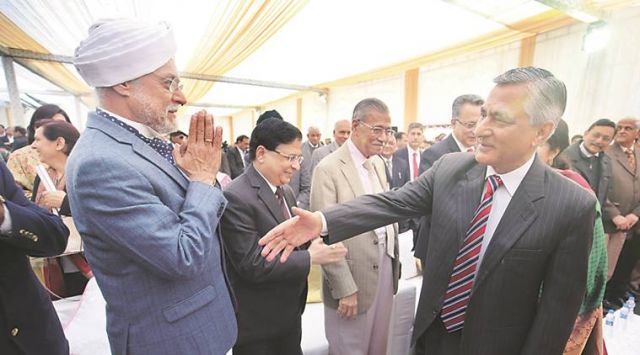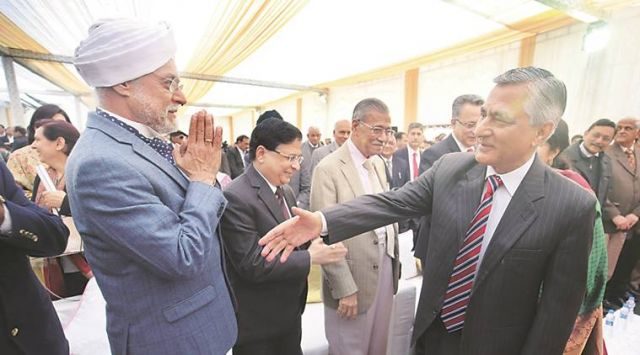
The workplace is a complex environment; by virtue of spending most of your waking day at the office, you tend to form relationships with your colleagues. However, don’t forget that these are professional relationships and can’t be considered friendships. Graduates on their first job often fail to understand this distinction, as they come from a casual, friendly environment. This complexity increases because you meet people from all walks of life at your office, from different cultures and ethnicities.
The bars becomes higher in MNCs and IT jobs, where IT professionals need to work with colleagues from different nationalities. And a lack of cultural sensibilities can often cause embarrassing situations. To grow and develop in a multicultural and multinational workplace you need to have your cultural sensibilities on point, especially in your communication – both written and verbal. Here is a checklist to keep in mind while encountering such situations –
1. Stay away from stereotyping –
Stereotyping is universal, even in India we tend to stereotype certain groups of people as funny, serious or loud. But people do not want to be reminded of this, especially in a workplace. Steer clear of using phrases or words like ‘You people’, ‘Aren’t you all like that’ which can put the person in a box they don’t wish to be in!
Stereotyping is universal, even in India we tend to stereotype certain groups of people as funny, serious or loud. But people do not want to be reminded of this, especially in a workplace. Steer clear of using phrases or words like ‘You people’, ‘Aren’t you all like that’ which can put the person in a box they don’t wish to be in!
2. Acquire knowledge of other cultures –
It’s just not possible to learn about every culture and it’s intricacies but the least you can do is learn a bit about the cultures, ethnicities and religions of those who surround you. This might make you more aware and lead to less awkward conversations.
3. Understand racism and discrimination –
You think you might understand racism but won’t think twice about a racist joke you crack because it was funny! You may be used to getting away with this stating it’s about humour but in a professional space ensure you think twice about what you are saying. Anything remotely racist and discriminatory to a community should be avoided.
4. Get to know the system –
In India, every office has several levels of hierarchy if you compare this with offices abroad you will notice that there aren’t so many levels. This means that you may have to interact with another analyst in USA but that person could have more experience than you although you may have the same designation. Knowledge and hierarchy change depending on the country, so don’t assume and communicate in a patronising manner.
5. Aggression in communication –
Certain workplaces in India have developed a workplace communication which almost borders on rude! This trend is changing but still, there is a cultural deference to seniority and many people get away with rude behaviour. Aggressive and demanding communication is not a norm in multinational offices and you should be careful of using any language that may offend.
6. Keep away politics, religion and sex –
The simplest way to stay away from controversies and offending others is by avoiding discussion on politics, religion and sex. You never know what ideology or philosophy the other person adheres to and you certainly don’t want to be on the offensive with your superiors!
The simplest way to stay away from controversies and offending others is by avoiding discussion on politics, religion and sex. You never know what ideology or philosophy the other person adheres to and you certainly don’t want to be on the offensive with your superiors!
7. Be wary of sexism and sexual harassment –
Workplace sexism is quite common in India where we dismiss women employees more often than we should. This is being taken seriously and especially in USA and other countries even a simple joke can be misconstrued and you could be blamed for sexism. Also, remember what is okay in your culture might not be okay in others, so don’t ask for your colleagues photographs or social profiles even if your motive is innocent.
8. Respect personal space –
Most Indians love to discuss everything over a lunch break, because it is prevalent in our work culture. But this is not the case everywhere; your international colleagues might not enjoy talking about their families or partners. Let the other person come back and share without you questioning them.
9. Ask everything, assume nothing –
This is the most important thing, do not ever assume anything about anybody. If you are in a doubt, right from basic things like pronouncing a person’s name make sure you ask for clarification.
All these above tips will help you avoid conflicts and embarrassment at your workplace due to cultural sensitivities!


























